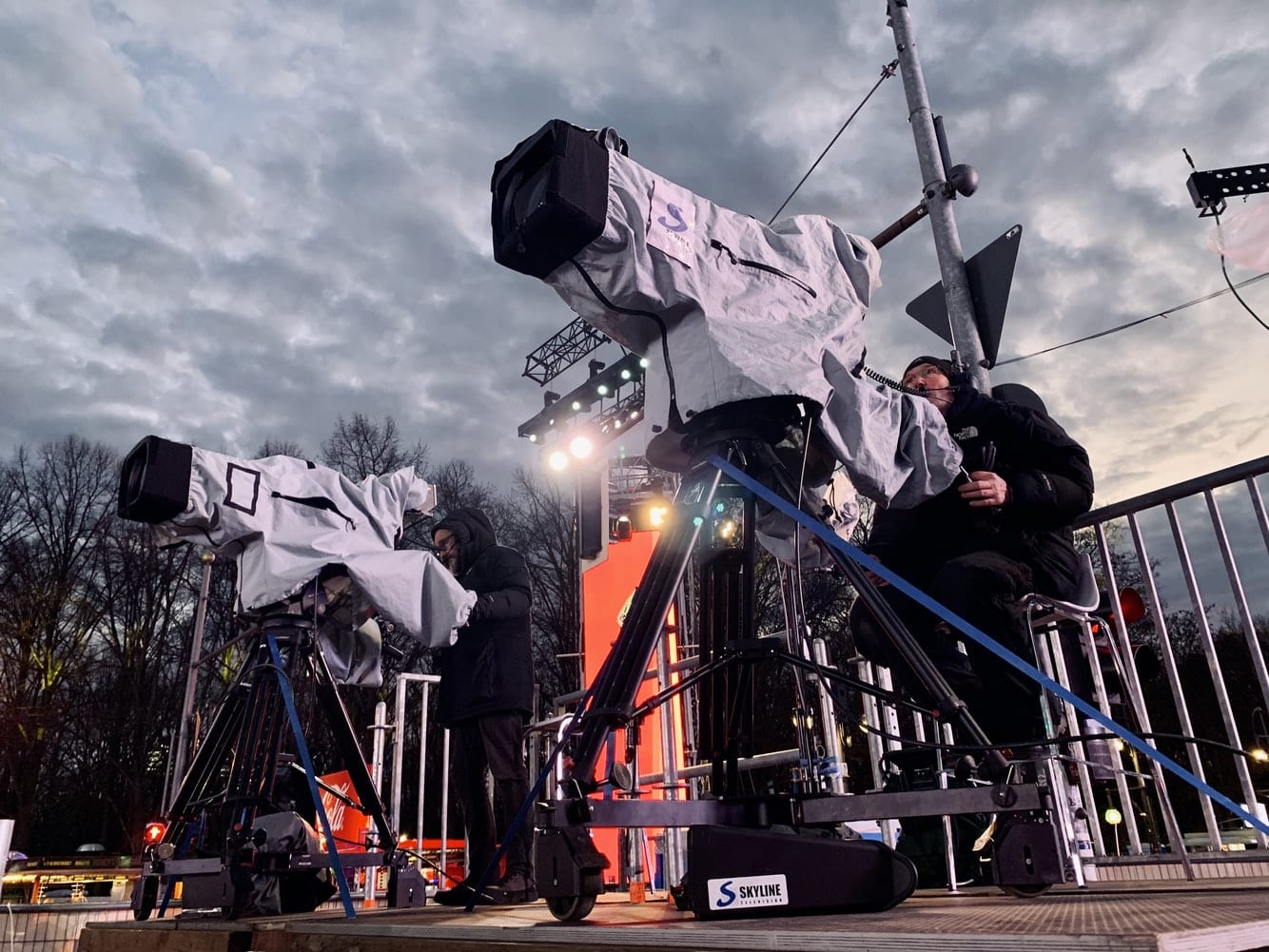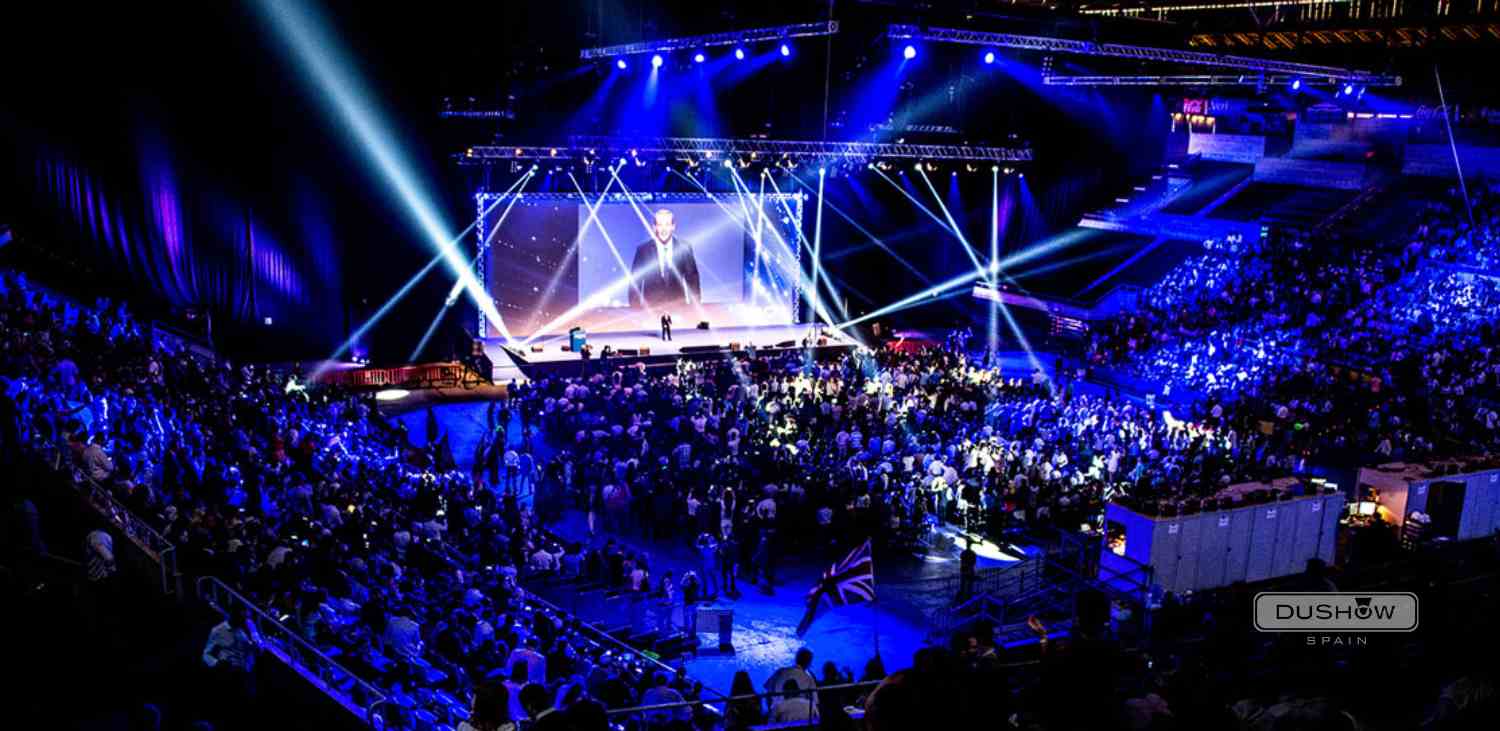Comprehending Event Production: Why It Is Essential for Effective Events
Event production plays an important role in shaping successful events. It involves cautious preparation, control, and implementation to guarantee every detail straightens with the event's vision. This process not just enhances guest experiences however additionally facilitates purposeful links among participants. Comprehending the ins and outs of event production can significantly affect the general outcome. What are the key components that add to a successful event, and exactly how can they be efficiently taken care of?
The Role of Event Production in Producing Remarkable Experiences
Although numerous aspects contribute to the success of an occasion, event production plays a critical duty in crafting remarkable experiences. This multifaceted process encompasses different aspects, consisting of planning, logistics, and execution. Effective event production guarantees that every detail aligns with the general vision, developing a seamless flow that captivates guests. By working with timelines, taking care of sources, and overseeing technological aspects, event producers establish a foundation for impactful experiences.Moreover, they curate environments that resonate with the target audience, enhancing engagement and emotional link. From picking suitable locations to integrating innovative technology, the selections made during production significantly influence how participants regard and bear in mind the event. By focusing on top quality and attention to detail, event production changes ordinary events right into remarkable moments, leaving lasting impressions. Eventually, the proficient orchestration of these components defines the essence of an occasion, showcasing the significance of professional event production in attaining remarkable outcomes.
Trick Parts of Effective Event Production
Effective event production rests on a number of vital components that ensure success. Planning and control establish a solid structure, while technological arrangement requirements resolve logistical needs. Furthermore, applying audience interaction approaches improves the total experience, making the event memorable.
Planning and Sychronisation
Preparation and control act as the backbone of effective event production, making sure that every detail lines up flawlessly to create a memorable experience. Efficient preparation entails developing a clear vision and objectives, while coordination involves the thorough organization of logistics, schedules, and resources. A well-defined timeline is vital, directing all stakeholders with essential milestones and tasks. Interaction plays a pivotal role, fostering collaboration among group participants, suppliers, and location personnel. Routine conferences and updates aid to attend to difficulties immediately, making sure that everyone continues to be aligned with the event goals. Inevitably, a structured technique to preparation and coordination not only enhances efficiency yet additionally substantially adds to the overall success and satisfaction of the event for participants and organizers alike.
Technical Setup Demands
An effective event depends heavily on its technical arrangement needs, which encompass important components such as audio-visual tools, illumination, hosting, and connection. Audio-visual devices includes microphones, audio speakers, and projectors, guaranteeing that discussions and efficiencies are delivered plainly. Appropriate lights improves the setting and highlights essential locations, while organizing provides the needed platform for audio speakers and performers. Connection, including Wi-Fi and electrical accessibility, is crucial for seamless interaction and modern technology assimilation. Each component has to be thoroughly planned and carried out, customized to the event's details requirements. Poor technical arrangements can lead to disturbances, negatively influencing the overall experience for guests, emphasizing the importance of comprehensive prep work and focus to detail in event production.
Audience Interaction Strategies

The Significance of Planning and Coordination
Preparation and control are critical to the success of any event production. Efficient timeline monitoring, source appropriation strategies, and team interaction dynamics play necessary functions in making certain that all components come together seamlessly. Without a structured approach to these aspects, events take the chance of dealing with hold-ups, budget plan overruns, and miscommunication among employee.
Reliable Timeline Administration


While effective event production often depends upon creativity and implementation, reliable timeline administration stays a crucial element that can not be overlooked. A well-structured timeline functions as the foundation of any kind of event, making certain that each stage is executed in a timely fashion. It allows for the sychronisation of different tasks, from venue setup to guest arrivals, while avoiding potential bottlenecks. By plainly laying out target dates and responsibilities, event coordinators can maintain emphasis and adapt to unexpected challenges. Furthermore, a carefully crafted timeline promotes communication among employee, promoting accountability and collaboration. Eventually, efficient timeline administration not only boosts functional efficiency however additionally contributes significantly to the overall success and smooth implementation of the event, leaving attendees with a memorable experience.
Source Appropriation Strategies
Reliable source allotment approaches are critical for the successful implementation of any type of event. Correct preparation allows event organizers to recognize and distribute resources, such as funds, employees, and materials, in a way that optimizes effectiveness. By assessing the details demands of each facet of the event, organizers can prioritize jobs and allot resources accordingly. Sychronisation amongst different divisions makes sure that all aspects, from dealing with audiovisual needs, are appropriately supported. This strategic technique not just reduces waste but likewise improves the total experience for attendees. Furthermore, anticipating prospective difficulties over at this website and having backup strategies in place enables smoother procedures. Ultimately, effective resource allowance adds significantly to achieving event objectives and ensuring an unforgettable event.
Team Communication Characteristics
How can seamless communication among group participants change the event production procedure? Effective communication is important for collaborating tasks, sharing updates, and resolving obstacles in real-time. When group participants take part in open dialogue, they can rapidly determine prospective problems and establish services collaboratively, reducing delays and misunderstandings. This vibrant fosters a natural environment where everyone understands their duties and duties, leading to an extra integrated initiative. In addition, routine check-ins and feedback loopholes boost accountability and assurance positioning with the event's objectives. By focusing on interaction methods, groups can streamline operations, boost morale, and inevitably elevate the overall high quality of the event. Successful celebrations hinge on the capacity to connect properly, making it an essential part of event production.
Enhancing Attendee Involvement Via Imaginative Design
Imaginative style plays a crucial function in improving attendee involvement at events, as it fosters an immersive atmosphere that captivates participants' attention. By incorporating innovative visuals, interactive components, and thematic decor, event coordinators can create memorable experiences that reverberate with attendees. Thoughtful design styles advertise movement and exploration, encouraging guests to connect with display screens and each other.Incorporating technology, such as increased fact or live polling, additional enhances the experience, permitting real-time responses and interaction. In addition, sensory components like lighting, audio, and scent can stimulate feelings and develop a more appealing atmosphere.The usage of storytelling through layout assists share the event's function and message, making it a lot more relatable for participants. Ultimately, innovative layout not only improves engagement but also strengthens connections among participants, leaving a lasting impact that prolongs beyond the event itself. This strategic strategy to layout is crucial for effective gatherings.
Managing Logistics for a Smooth Implementation
While the excitement of an event can attract participants in, taking care of logistics is essential to protect a smooth execution. This includes carefully collaborating different components, from place option and format to event catering and transportation. Effective logistics administration guarantees that all elements align, permitting a smooth flow from enrollment to the final thought of the event.Additionally, a clear interaction strategy among all stakeholders is crucial. This consists of staff, vendors, and volunteers, that have to be informed of their functions and duties. Expecting potential obstacles, such as equipment failure or unforeseen weather conditions, can even more improve the event's success.Creating a thorough timeline helps maintain the team on the hop over to here right track and enables timely modifications. Eventually, well-managed logistics not only assist in a pleasurable experience for participants but additionally reflect the professionalism and dependability of the coordinators, adding to the general success of the gathering.

The Effect of Technology on Event Production
What role does technology play in shaping modern-day event production? Modern technology has become a cornerstone of reliable event production, boosting both intending and implementation processes. From innovative registration systems to interactive apps, innovation simplifies guest administration and enhances engagement. Online event systems enable coordinators to reach bigger target markets, breaking geographical obstacles and assisting in hybrid celebrations that integrate in-person and on-line experiences.Additionally, audiovisual modern technologies, such as high-definition screens and stereos, boost the quality of presentations and efficiencies, making sure an unforgettable experience for participants - event production charlotte. Social media combination allows real-time responses and communication, promoting community interaction previously, throughout, and after the event. Furthermore, data analytics tools help organizers in keeping track of individual habits and preferences, enabling tailored experiences that reverberate with diverse target markets. Generally, the integration of innovation in event production not go just boosts functional efficiency but likewise enhances guest experiences, inevitably adding to the success of the event
Reviewing Success: Gauging the End Results of Your Event
Success in event production depends upon reliable analysis, which includes measuring a variety of outcomes to analyze the total influence of an occasion. To accomplish this, coordinators can use both qualitative and measurable metrics. Measurable steps might include participation numbers, ticket sales, and revenue generated, while qualitative evaluations may entail guest satisfaction surveys and comments forms.Additionally, assessing social media engagement and media coverage can give understandings into the event's reach and brand effect. Contrasting these metrics versus predefined goals assists determine if the goals were met.Furthermore, post-event debriefs with the planning team can uncover lessons found out and areas for enhancement. By methodically evaluating these end results, event manufacturers can improve future gatherings, guaranteeing continual development and success. Ultimately, a comprehensive examination not just highlights achievements yet additionally notifies tactical choices for succeeding events, fostering a society of excellence in event production.
Regularly Asked Inquiries
What Qualifications Should an Event Manufacturer Have?
Event producers must possess strong organizational abilities, creative thinking, and reliable communication capacities. A background in task administration, budgeting, and negotiation is essential. Appropriate qualifications and experience in varied event kinds additionally improve their qualifications.
Exactly How Can I Decrease Event Production Expenses Efficiently?
To efficiently minimize event production expenses, one can simplify vendor selection, work out contracts, make use of internal resources, focus on vital elements, apply modern technology for performance, and check out sponsorship opportunities to balance out expenditures without endangering quality.
What Are the Usual Obstacles in Event Production?
Usual obstacles in event production consist of spending plan restraints, logistical sychronisation, vendor management, time restrictions, guest involvement, technological difficulties, and unexpected scenarios - event production charlotte. Each factor can considerably affect the general success and smooth execution of the event
How Do I Choose the Right Venue for My Event?
Choosing the right place entails taking into consideration variables such as location, capacity, amenities, and budget. In addition, reviewing availability and setting assures the chosen area aligns with the event's objectives and improves the general guest experience.
What Is the Typical Timeline for Preparation an Event?
The typical timeline for intending an event varies, but usually includes phases such as idea development, location choice, supplier sychronisation, promotion, and last preparations, usually extending a number of months to guarantee an effective implementation.
Comments on “Live events vs. virtual: How event production charlotte excels in both”